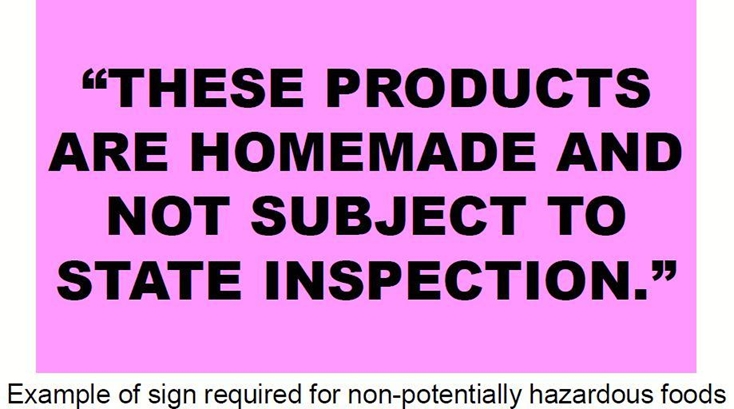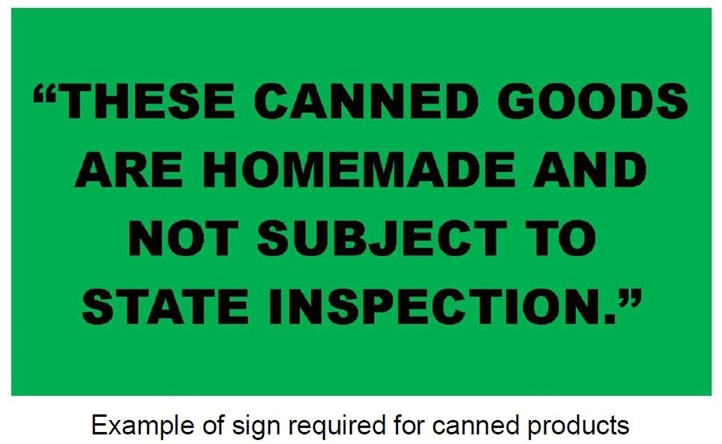
For more information on these signs, see the Labeling, Signage, and Packaging section above.

For more information on these signs, see the Labeling, Signage, and Packaging section above.

For more information on these signs, see the Labeling, Signage, and Packaging section above.

For more information on these signs, see the Labeling, Signage, and Packaging section above.

For more information on these signs, see the Labeling, Signage, and Packaging section above.

For more information on these signs, see the Labeling, Signage, and Packaging section above.
No. The Cottage Food Exemption is an exemption from food licensing and applies to food. Edible cannabinoids are explicitly excluded from the definition of food products found in Minn. Stats. §34A.01, subd. 4. Cannabinoids like THC or CBD cannot be ingredients in cottage food.
No. The Cottage Food Exemption is an exemption from food licensing and applies to food. Edible cannabinoids are explicitly excluded from the definition of food products found in Minn. Stats. §34A.01, subd. 4. Cannabinoids like THC or CBD cannot be ingredients in cottage food.
Neither a cottage food registration or food license are required to make and sell honey or maple syrup products if:
1) The person makes the products from hives they own or rent or trees that are on land they own or rent, and
2) No purchased or "off-land" ingredients are added to the products (e.g., adding cinnamon or honey/syrup/sap sourced from others).
The honey and maple syrup products would be considered a "product of the farm or garden" under Minnesota Statute and can be sold from the home, direct to consumers, at farmers' markets, shipped, and wholesaled to other businesses. Labeling requirements still apply. Please see Food Labeling Requirements for more information.
A cottage food registration or food license is required when purchased or ingredients are added to the honey or maple syrup product or if the producer is using sap, maple syrup, or honey from another producer. When this happens, the product is no longer considered a product of their farm or garden and is no longer excluded from licensing requirements.
Neither a cottage food registration or food license are required to make and sell honey or maple syrup products if:
1) The person makes the products from hives they own or rent or trees that are on land they own or rent, and
2) No purchased or "off-land" ingredients are added to the products (e.g., adding cinnamon or honey/syrup/sap sourced from others).
The honey and maple syrup products would be considered a "product of the farm or garden" under Minnesota Statute and can be sold from the home, direct to consumers, at farmers' markets, shipped, and wholesaled to other businesses. Labeling requirements still apply. Please see Food Labeling Requirements for more information.
A cottage food registration or food license is required when purchased or ingredients are added to the honey or maple syrup product or if the producer is using sap, maple syrup, or honey from another producer. When this happens, the product is no longer considered a product of their farm or garden and is no longer excluded from licensing requirements.

